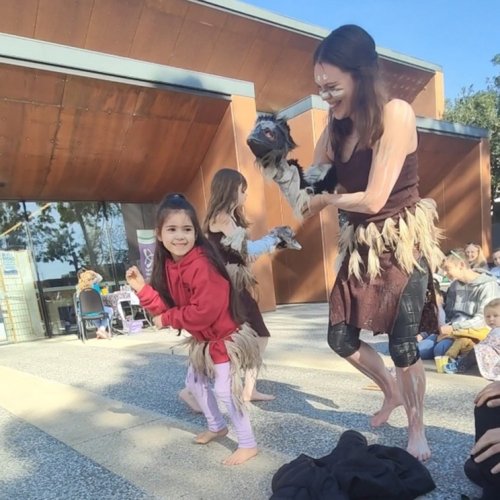
The last 10 years have been a huge period of learning, culture and deep connections for Charly, who’s been immersing herself in her heritage, and making connections with her family. But for Charly, family is more than blood.
She said, “I’ve got people who are culturally considered like my sister, but are of no blood relation whatsoever. Our culture and heritage are intertwined, and that’s what makes us family.”
In Aboriginal culture, totems are a natural object, plant or animal, inherited by members of a Clan or family as their spiritual emblem. They represent a sense of ownership and responsibility these communities feel over the land, by connecting personal identity with the natural world. You can be given a totem by an elder, or in some cases, the totem chooses you. In Charly’s case, her connection to the land and animals was bought to a new level when her personal totem, a Dyagula (lyrebird), a traditionally a shy bird, chose her when it came to her during a stay at her Auntie’s place in the Blue Mountains. Since that day, the bird is always there when she visits.
Charly and her family have always celebrated their culture, it’s at the heart of everything they do and part of everyday life. NAIDOC Week is an opportunity for Charly to share her heritage and connection to Country with those around her.
The 2024 NAIDOC Week theme of ‘Keep the Fire Burning! Blak, loud and proud’, is about “recognising the hardship my people endured, and still experience, while sharing our culture that is alive, and still burns, with everyone to learn about and enjoy,” said Charly.
To celebrate NAIDOC Week, Charly and her family plan on spending time in her hometown in the Blue Mountains to attend NAIDOC community events. Like last year, her daughter might join Charly’s tidda (sister) in a dinawan (Emu) dance, and they’ll make some of their favourite bush tucker and a family favourite, lmyrtle (lemon myrtle) tea.

NAIDOC Week 2024, 7-14 July, is a time to celebrate and recognise the history, culture and achievements of Aboriginal and Torres Strait Islander peoples.

